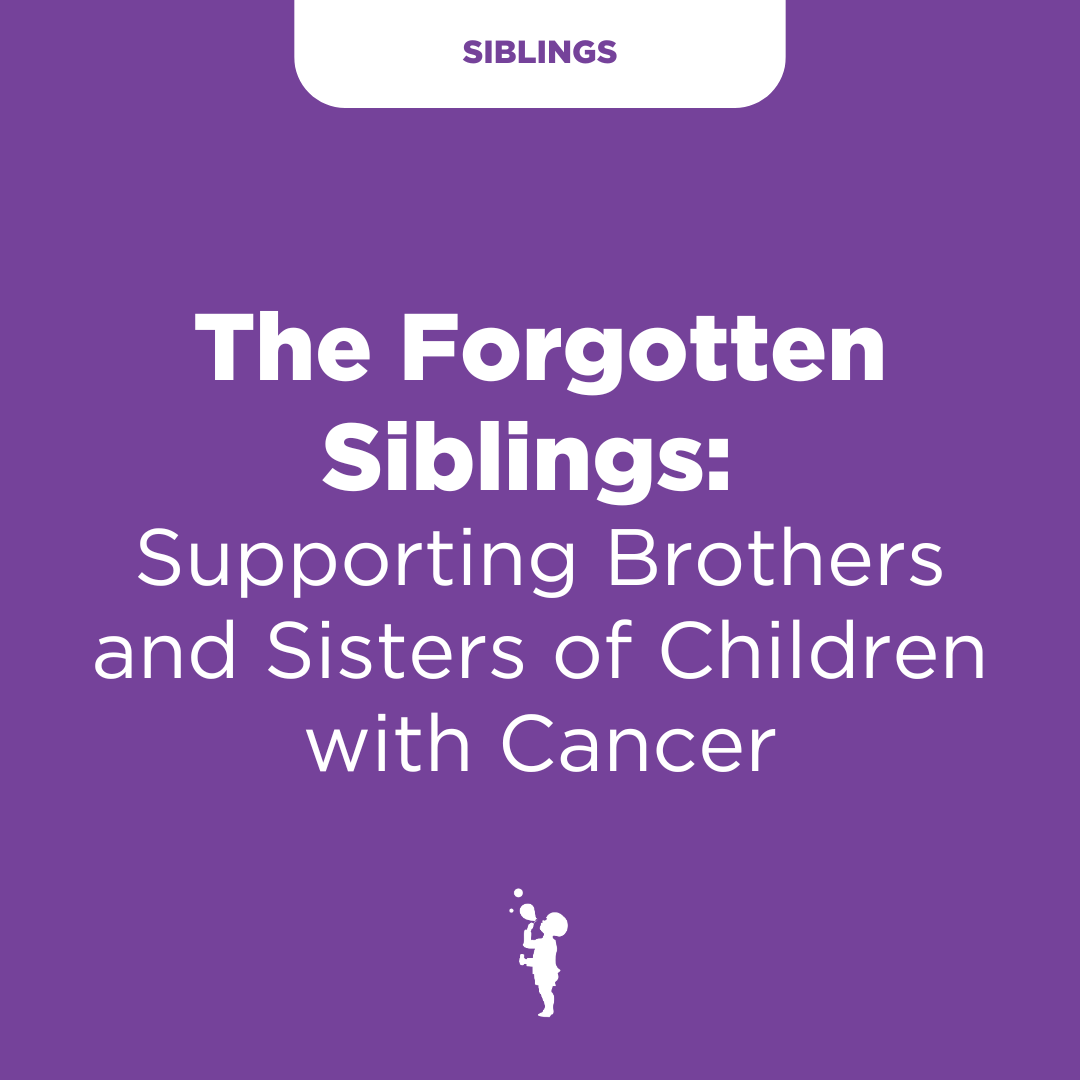Sleep Disturbances Among Pediatric Cancer Survivors
What is sleep disruption?
Sleep disruption is a "term that describes a range of difficulties related to getting enough quality of sleep" (Merz & Tomfohr-Madsen, 2016).
Sleep disturbances among pediatric cancer survivors:
Sleep disturbances are commonly experienced by pediatric cancer survivors during and after treatment. As the science world advances, more children are successfully overcoming cancer treatment and entering the survivorship phase (Merz & Tomfohr-Madsen, 2016). Research shows that sleep problems such as falling asleep and staying asleep have emerged as a significant concern. Poor sleep can have a significant impact on the quality of life impacting an individual's mental, emotional and physical well being (Merz & Tomfohr-Madsen, 2016).
Ways inadequate sleep can affect one's well being?
- Fatigue and Lack of Energy: Poor sleep can lead to persistent fatigue and a lack of energy, making it difficult for cancer survivors to engage in daily activities and enjoy their lives fully.
- Physical Health Issues: Inadequate sleep can weaken an individual's immune system that may already be compromised due to treatments. Poor sleep can further hinder their recovery and overall physical health.
- Emotional Distress: Inadequate sleep can result in mental health issues such as anxiety and depression. While cancer survivors often experience emotional challenges, poor sleep can exacerbate the feelings, making it harder to cope.
- Impaired Cognitive Functioning: Lack of sleep can impair cognitive abilities such as memory, attention, concentration, and problem-solving making it challenging for pediatric cancer survivors to perform everyday tasks affecting their quality of life.
- Decreased School performance: Sleep disturbances can impact cognitive functioning and reduce productivity, making it challenging for pediatric cancer survivors to actively participate in school.
- Poor Quality of Life: Poor sleep can impact an individual's physical, emotional, cognitive, and social well-being which can significantly diminish a cancer survivor's overall quality of life. It can hinder their ability to engage in activities they enjoy, affect their self-esteem, and decrease their sense of overall well-being.
Sleep Hygiene Strategies
- Consistent sleep schedule: Maintaining a consistent sleep schedule helps regulate the body's internal clock and promote better sleep quality. Limit simulating activities such as watching TV or using electronic devices.
- Mindful eating and hydration: Encourage avoiding heavy meals and sweets close to bedtime. These can often disrupt sleep and cause discomfort. If you are hungry, a light snack and adequate hydration is recommended.
- Establish a bedtime routine: Develop a relaxing routine before bed to help prepare the mind and body to prepare to sleep. Activities such as listening to calm music, reading a book, relaxation exercise, and warm bath can help.
- Physical activity: Physical activity on a daily basis can promote and improve sleep quality. Perform physical activity at your comfort level, however avoid intense physical activity too close to bedtime.
- Manage stress and anxiety: Oftentimes cancer survivors have increased stress and anxiety resulting in poor quality of sleep. Performing deep breathing exercises, meditation or journaling helps calm the mind and promote relaxation.
Environmental Modification Strategies:
- Lighting: When sleeping ensure the environment is dark. Utilizing blackout curtains or blinds can help minimize outside light sources that may disrupt sleep. Avoid using electronic devices close to bed time, as the blue light can interfere with the sleep-wake cycle.
- Noise Reduction: Minimizing noise disturbances by utilizing ear plugs, white sound machines, or listening to soothing sounds such as nature or calming ocean waves can help promote a peaceful sleep environment.
- Comfort Bedding: Suggest evaluating the comfort provided by mattress, pillow, and bedding. Recommend using pillows, mattress that's designed to alleviate pressure points and promote sleep quality. Using breathable bedding material can also improve sleep.
- Minimize Distraction: Removing and reducing access to electronic devices, work-related materials and other items that may cause stress. A calm and peaceful sleep environment can help facilitate improved sleep quality.
- Assistive Device: According to Dreampad pillow, weighted blanket, eye masks, ear plugs and white noise machine can facilitate and promote sleep quality.
References:
City of Hope. (n.d.). Ho,E.C.M., & Siu, A. M. H. (2018, July 29). Insomnia and Sleep Management for Cancer Survivors
Occupational therapy international. Occupational therapy practice in sleep management: A review of Conceptual Models and research evidence
Merz, E. L., & Tomfohr-Madsen, L. (2016, December 8). American journal of lifestyle medicine. Sleep disruption in pediatric cancer survivors



.png)


.png)